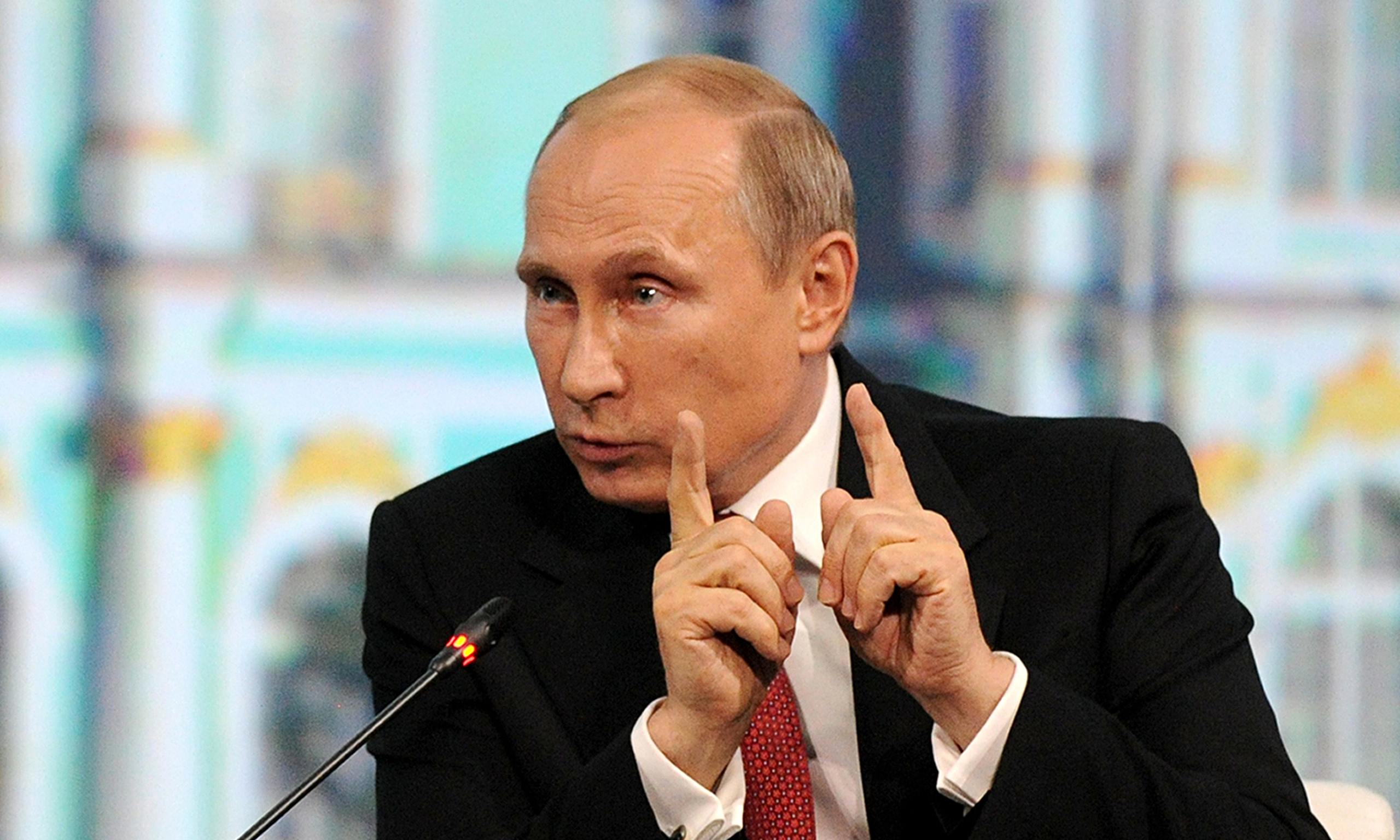Russian law clarifies bloggers’ responsibilities
 Any
Any
A new Russian law was signed into effect by President Vladimir Putin on May 5.
Any blogger with more than 3,000 readers must abide by Russia’s law on mass media outlets, according to a new Russian law signed into effect by President Vladimir Putin on May 5. The law grants bloggers legitimacy and the right to advertise, but also forbids them from writing anonymously. In cases where bloggers’ identities remain undisclosed, Russia’s media oversight agency will demand information from the web hosting provider within three days, or else the provider will face fines.
The bloggers’ law also prohibits popular internet writers from engaging in illegal activities on the internet or their web pages, including leaking state secrets, appealing to or glorifying terrorism and other kinds of extremism, or disseminating pornography, depictions of violence or foul language. Writers are responsible for checking the accuracy and legitimacy of any information before they post it online and removing any information that proves unreliable or illegal. In addition, they are forbidden from disseminating information that compromises other citizens’ privacy. Those who post information indiscriminately will be investigated for administrative, criminal or other liability.
According to a poll conducted by the Levada Center, an independent polling agency in Russia, the majority of the Russian public does not oppose internet supervision. Of the 1,602 surveyed, merely 5% said they believed internet supervision is not feasible, while 21% agreed it is necessary to supervise and restrict information disseminated on the internet and 28% said they can totally accept this supervision. 36% believe the purpose of supervision is to hold internet writers responsible for their statements. Some respondents expressed concern that supervision may influence free expression of public will, and cautioned that supervision cannot be abused.
Opponents of the new law argue it threatens social activists and will prevent public discussion of certain topics.
Sergey Zheleznyak, the drafter of the law and deputy chairman of the State Duma, stressed that the law simply represents a use of legal means to protect the authority necessary for combating malicious cyber forces. It is not at all tantamount to restricting the right to discourse and will not be used to target critics of the government, Zheleznyak assured. Rather, it will be used to sanction those who intimidate others by threats of violence and slander, incite other people or commit other crimes, he said.
Ilya Varlamov, a Russian photographer affected by the new law said he completely agrees with the law. Without an effective system to track users, people can easily take advantage of anonymity or false identities and fabricate information. The key to addressing this problem is establishing users’ identities and implementing the law effectively, Varlamov observed.
Zhang Shuhua, director of the Institute of Information Studies at CASS, noted that supervision of the internet has always been a priority for Russia, and the new bloggers law has a clear political purpose. He explained that the events in Crimea further compelled Russia to strengthen its overall concept of security and improve supervision across many fields. Establishing a sense of sovereignty on the internet and strengthening supervision are the tip of the iceberg for Russia’s overall security, Zhang concluded.
Dmitry Sorokin, a correspondent at the Russian Academy of Sciences, observed that different from physical society, the internet does not need an actual, physical space to exist. Without this constraint, people can communicate and transmit information without seeing each other. These interactions can happen more rapidly and randomly, consciously or unconsciously influencing other people, sometimes even before the participants realize the impact of their actions.
“Since directing people’s words and actions with legal regulations and ethical standards is the basis of maintaining public order, we need reasonable and legitimate rules of conduct to maintain order in virtual society,” Sorokin asserted. In the absence of effective legal regulations, Sorokin fears people with malicious intentions will be given a free hand to use the internet as their playground, causing chaos in virtual society that will reverberate in real society. Because society today is a mixture of both virtual and real society, it is natural to issue laws guiding internet use and to regulate writing on the internet.
Regulation of cyber space is a problem facing every government. With over 600 million netizens, China’s internet users outnumber their Russian counterparts. Currently, the number of mobile netizens is also increasing rapidly in China.
Chen Long, deputy director of Phoenix Communication College at Soochow University, asserted that internet opinion undoubtedly has an impact on society. Popular bloggers and users of microblogs can lead public opinion, Chen said, stressing that without adequate legal constraints, these writers may neglect their social responsibilities and release information without proper discretion, causing enormous consequences.
Given cases of cybercrime in China, Chen Long believes it is urgent to strengthen legal supervision and establish order on the internet. Administrative instruments cannot solve the problems at a fundamental level, Chen said, iterating the importance of establishing a legal mechanism for supervision in facilitating the healthy development of cyber space. Russia’s bloggers law is of course something we can learn from, Chen said.
The Chinese version appeared in Chinese Social Sciences Today, No. 596, May 16, 2014
